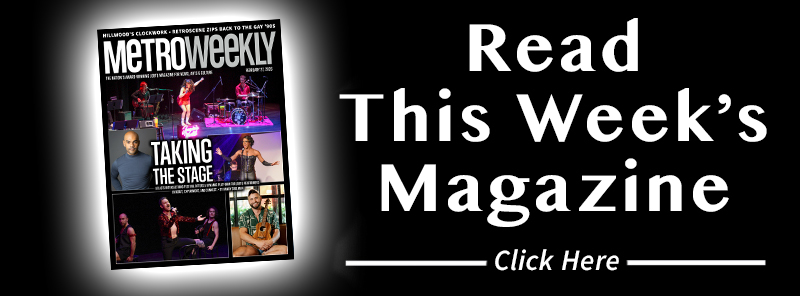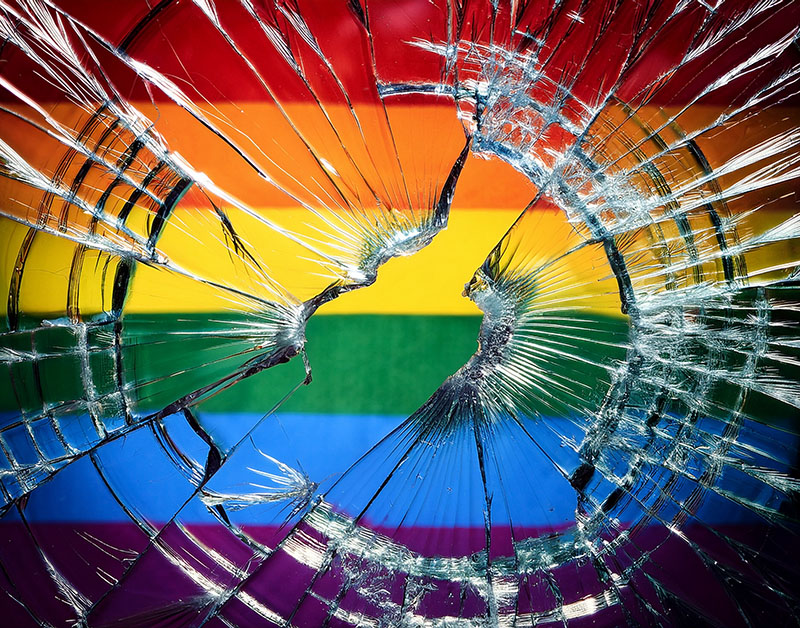Pope Leo XIV to Continue Blessings for Same-Sex Couples
The Vatican will maintain its 2023 policy allowing priests to bless LGBTQ individuals in same-sex relationships, despite conservative backlash.

Roman Catholic priests will continue to be permitted to offer blessings to individuals in same-sex relationships under Pope Leo XIV, maintaining a policy approved by his predecessor, Pope Francis, that has drawn criticism from conservative Catholics.
The continuation of the policy was confirmed on July 3 by Cardinal Victor Manuel Fernández, head of the Vatican’s doctrinal office, in an interview with the Rome-based daily Il Messaggero. The Vatican did not issue an official statement, according to the National Catholic Reporter.
As Metro Weekly previously reported, in December 2023 the Dicastery for the Doctrine of the Faith released a document titled Fiducia Supplicans: On the Pastoral Meaning of Blessings. The declaration, co-signed by Fernández and his deputy, doctrinal secretary Monsignor Armando Matteo, stated that the Catholic Church would permit limited blessings for couples in “irregular” situations, including same-sex relationships.
The declaration drew a distinction between formal liturgical blessings — performed during Mass or a specific rite — and more informal, spontaneous blessings. Priests are allowed to offer the latter to same-sex couples, as well as to divorced or remarried individuals. Such blessings must not include any prepared texts or rituals, and priests are instructed not to allow them to “be performed with any clothing, gestures, or words that are proper to a wedding.”
The blessings document drew sharp backlash from social conservatives and critics of Pope Francis’ more liberal-minded leadership of the Church, who saw it as a sign that the Vatican was softening its stance on same-sex marriage — despite Francis’ repeated public statements opposing it.
For many, the approval of blessings for same-sex couples — however limited or qualified — marked a significant departure from past Church teaching, when priests routinely refused to bless relationships that did not align with the Church’s one man-one woman view of marriage.
African bishops were especially critical of what they viewed as a doctrinal shift, with several refusing to allow priests in their dioceses to issue such blessings. They argued the practice conflicts with African cultural values — many of which, they noted, were originally imposed by European colonizers.
One of the most vocal critics, Cardinal Fridolin Ambongo Besungu, the archbishop of Kinshasa — and once considered a potential candidate for the papacy — wrote a letter stating that African bishops would not allow blessings for individuals in same-sex unions, arguing such actions would “cause confusion and would be in direct contradiction to the cultural ethos of African communities.”
Mindful of backlash from African bishops and other conservative church leaders, the Vatican issued several statements clarifying that the blessings are not conferred upon the unions themselves, but upon the individual Catholics — current or former — involved in “irregular” relationships.
Asked by Il Messaggero whether Pope Leo — considered more conservative than his predecessor, despite not being the preferred choice of right-wing Catholics — would walk back Francis’ declaration, Fernández, who had met privately with the pope, replied, “I really don’t think so — the declaration will remain.”
Before Fernández’s comment, the most prominent signal of how the new pope might approach the issue came from Cardinal Jean-Claude Hollerich, who told the Italian Catholic daily La Stampa he believed Leo might “re-interpret” the 2023 Fiducia Supplicans document without abolishing it outright.
“Pope Leo has said that the church is open to all,” said Hollerich, who previously served as the Jesuit archbishop of Luxembourg before being elevated to cardinal in 2019. “This is a continuation of the approach of Francis, who used to repeat ‘Everyone, everyone, everyone.'”
Support Metro Weekly’s Journalism
These are challenging times for news organizations. And yet it’s crucial we stay active and provide vital resources and information to both our local readers and the world. So won’t you please take a moment and consider supporting Metro Weekly with a membership? For as little as $5 a month, you can help ensure Metro Weekly magazine and MetroWeekly.com remain free, viable resources as we provide the best, most diverse, culturally-resonant LGBTQ coverage in both the D.C. region and around the world. Memberships come with exclusive perks and discounts, your own personal digital delivery of each week’s magazine (and an archive), access to our Member's Lounge when it launches this fall, and exclusive members-only items like Metro Weekly Membership Mugs and Tote Bags! Check out all our membership levels here and please join us today!




























You must be logged in to post a comment.